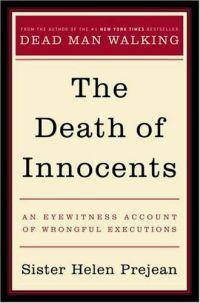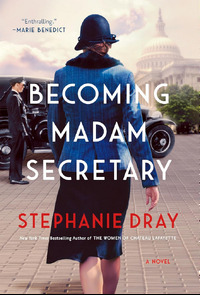

Purchase
An Eyewitness Account of Wrongful Executions
Random House
December 2004
336 pages
ISBN: 0679440569
Hardcover
Add to Wish List
Non-Fiction Biography
Sister Helen Prejean was a little-known Roman Catholic nun
from Louisiana when in 1993, her first book Dead Man
Walking, challenged the way we look at the death penalty in
America. It became a #1 New York Times bestseller and was
nominated for the Pulitzer Prize. Now in The Death of
Innocents, she takes us to the new moral edge of the debate
on capital punishment: What if we’re killing the wrong man? Dobie Gillis Williams, an indigent black man from rural
Louisiana with an IQ of 65, was accused of a brutal rape
and murder. Williams’s inept defense counsel, later
disbarred for unethical practice for unrelated cases,
allowed the prosecution’s incredibly contrived scenario of
the crime to go unchallenged. Less than two years after
Williams’s execution in January 1999, the Supreme Court
ruled it unconstitutional to kill a man so mentally
disabled. In 1986, Joseph Roger O’Dell was convicted of murder in
Virginia despite highly circumstantial evidence from a
jailhouse snitch. For twelve years, O’Dell sought DNA
testing on the forensic evidence, which he claimed would
exonerate him, but the courts refused. After his execution
on July 23, 1997, the state destroyed the evidence. As a
result, its conviction of O’Dell could never be scrutinized. “The reader of this book will be the first ‘jury’ with
access to all the evidence the trial juries never saw,”
says Prejean, who accompanied both men to their executions.
By using the withheld evidence to reconstruct the crimes
for which these two men were convicted, Prejean shows how
race, prosecutorial ambition, poverty, election cycles, and
publicity play far too great a role in determining who dies
and who lives. Prejean traces the historical underpinnings of executions
in this country, demonstrating that it is no accident that
over 80 percent of executions in the past twenty-five years
have been carried out in the former slave states. She also
raises profound constitutional questions about an appeals
system that decides most death cases on procedural grounds
without ever examining their merits. To date, 113 wrongfully convicted persons have been freed
from death row. If constitutional protections–due process,
assistance of counsel, and equal justice under law–are
truly being respected, how is it possible that these people
were convicted in the first place? And how can we accept a
system so rife with error? Sister Helen Prejean takes us with her on her spiritual
journey as she accompanies two possibly innocent human
beings to their deaths at the hands of the state. Prejean
implores us to reflect on what is perhaps the core moral
issue of the death penalty debate: Honorable people
disagree about the justice of executing the guilty, but can
anyone argue about the injustice of executing the innocent?
Comments
No comments posted.
Registered users may leave comments.
Log in or register now!
| 


 © 2003-2025 off-the-edge.net
all rights reserved Privacy Policy
© 2003-2025 off-the-edge.net
all rights reserved Privacy Policy